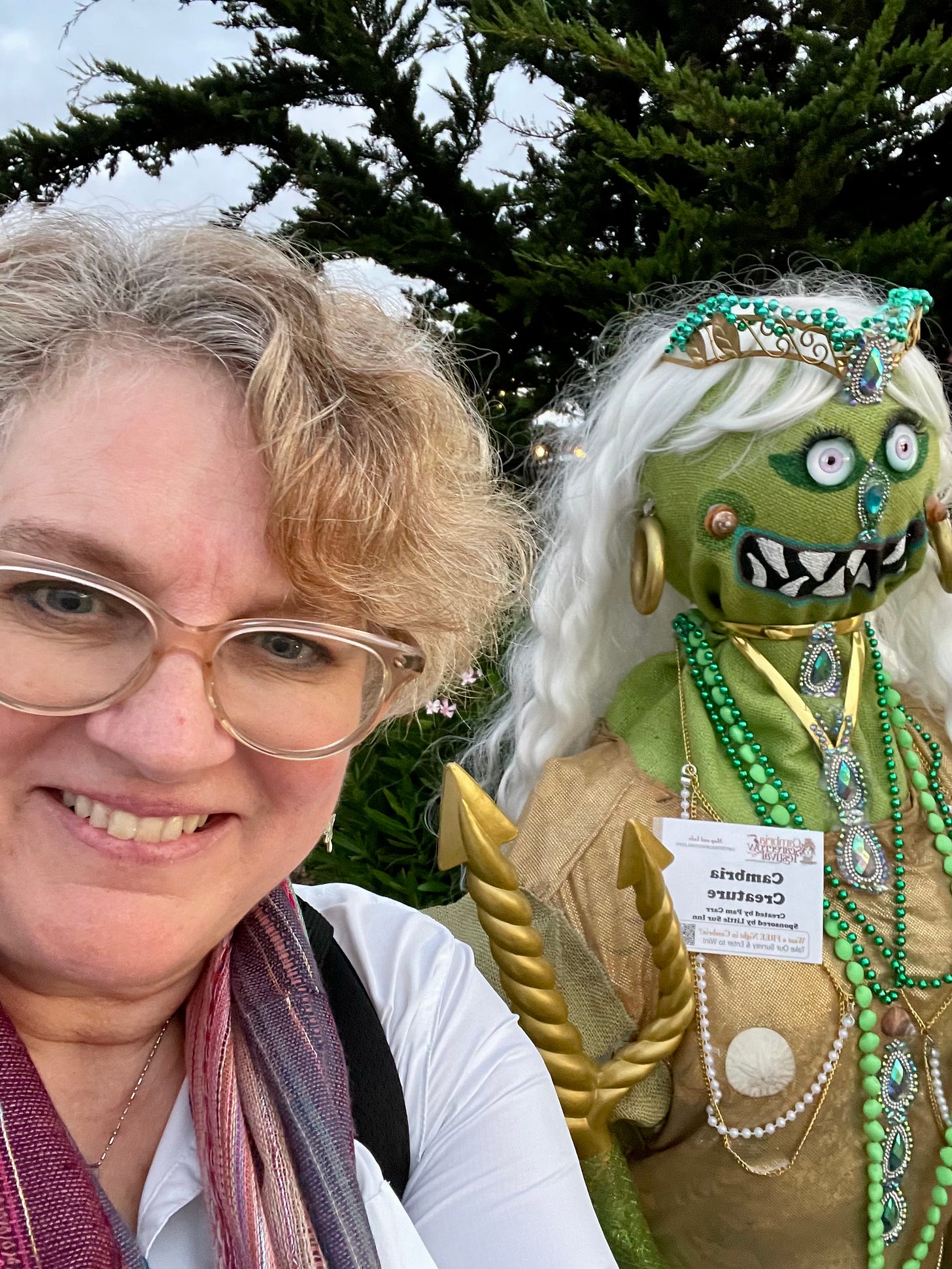Beating the Clock After Brain Injury:
How Alarms and Timers Helped Me Take Back My Time
I always found myself rushing to my patient’s room, singing in my head, “I’m late! I’m Late! For a very important date!”. If this sounds familiar, know that you’re not alone—many people face these challenges after a brain injury.
You might notice, as I did, that after a brain injury, even something as simple as monitoring the passing of time becomes difficult. What feels like minutes can actually be hours. This can be confusing and frustrating, but understanding this change is an essential step towards managing it.
At work, I would find myself constantly checking the time, worried about missing appointments. At other times, I would forget entirely, only to realize I was late to see my next patient. This created unnecessary stress for me.
I had the opportunity to enjoy the Scarecrow Festival this year in Cambria, California.
Time management is an essential job skill, but after a head injury, it becomes a whole new challenge. Recognizing this is not a failure—it’s a sign of your resilience as you learn to navigate new realities.
Before your brain injury, you may have taken for granted how easily your brain monitored the passing of time. It’s natural to grieve the loss of this effortless skill, but remember that new strategies and tools can make a big difference.
Here are a few steps it takes to monitor time:
Break your focus from your work to check the time.
Register the time in your mind, then calculate how much time you have before your next scheduled task or meeting.
Bring your focus back to your current task, find and remember where you left off, and recall what your next planned action step is.
This cognitive process requires significant energy to calculate time, remember where you left off, and proceed with your next steps. These time management and focus-shifting processes expend mental resources that could be used to focus on your work.
I discovered that using alarms on my smartphone helped conserve my brain’s energy, made time management easier, and maintained my focus at work by automatically reminding me when it was time to transition tasks.
Using timers and alarms releases your brain from the burden of tracking time. When I began setting alarms on my smartphone, I felt calmer and more in control. I could focus on my work, confident that my alarm would remind me when it was time to look up and transition tasks.
Additionally, I found alerts on vibration were easy for my brain to dismiss and ignore. I discovered that alarms with music or sound effects were more effective in capturing my full attention. I even set alarms with music for specific times, such as Dolly Parton’s “9 to 5,” to remind me to clock in for work, and Pink’s “Get the Party Started” for when it was time to leave work.
Halloween is one of my favorite holidays!
Other ways a set alarm can help you are:
Alarms can remind you about medications, rest breaks, meetings, appointments, and picking up the kids from school.
Timers can support your short-term memory by reminding you to turn off the oven or your sprinklers.
Alarms can help you pace your tasks—reminding you when to wrap up, clear your desk, and leave on time.
Recap:
Use alarms and timers as external reminders while your brain heals. These tools help lessen the mental load and allow you to focus on your work.
Choose alarms with rings or music to help capture your attention. Personalized sounds can make reminders more engaging and effective.
Let alarms pace your progress and gently remind you when it’s time to move on to your next task—supporting your daily rhythm as you recover.
I hope these tips will help you manage your time at work, just as they helped me during my own healing process. Recovery is a journey, and every small improvement matters.
Take care, get better, get stronger,
Kelly Tuttle
Brain-Loving Advocate
P.S. As a brain injury survivor, I understand the challenges of reintegration into the workforce. If you’re also a survivor looking to return to work, please visit my website for my online program: Return to Work and Life After a Brain Injury.
You can also find my book, After the Crash: How to Keep Your Job, Stay in School, and Live Life After a Brain Injury, and additional resources.
My book, After the Crash, is also on Audible.
My book, After the Crash: How to Keep Your Job, Stay in School, and Live Life After a Brain Injury, can be found on Amazon or at your favorite independent bookstore
I created a journal just for you! Check out My Brain Injury Recovery Journal




